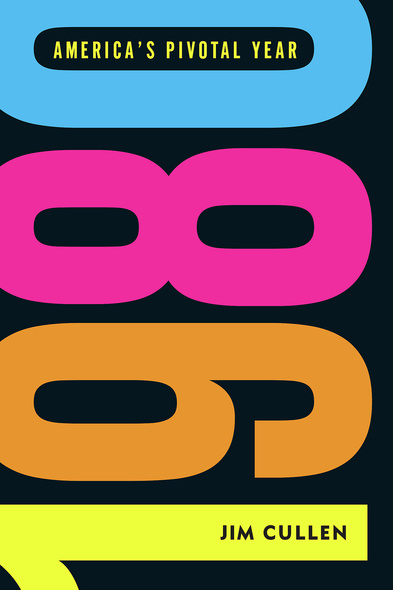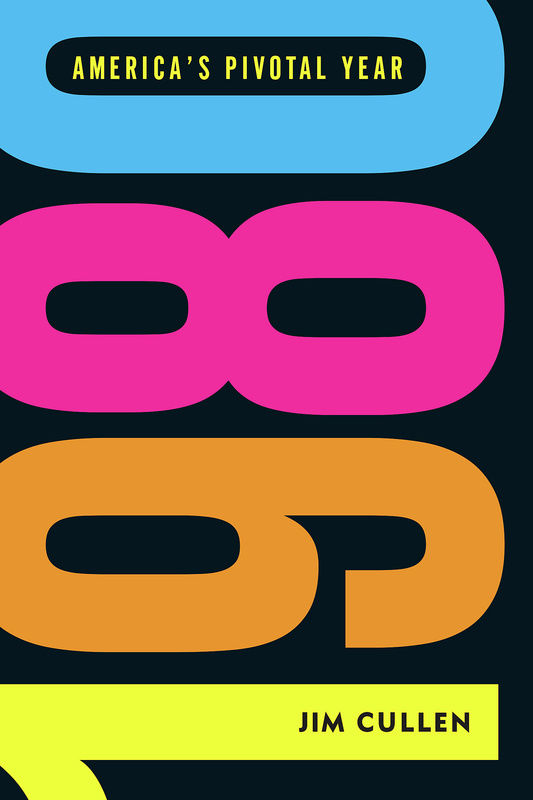1980 was a turning point in American history. When the year began, it was still very much the 1970s, with Jimmy Carter in the White House, a sluggish economy marked by high inflation, and the disco still riding the airwaves. When it ended, Ronald Reagan won the presidency in a landslide, inaugurating a rightward turn in American politics and culture. We still feel the effects of this tectonic shift today, as even subsequent Democratic administrations have offered neoliberal economic and social policies that owe more to Reagan than to FDR or LBJ. To understand what the American public was thinking during this pivotal year, we need to examine what they were reading, listening to, and watching.
1980: America's Pivotal Year puts the news events of the era—everything from the Iran hostage crisis to the rise of televangelism—into conversation with the year’s popular culture. Separate chapters focus on the movies, television shows, songs, and books that Americans were talking about that year, including both the biggest hits and some notable flops that failed to capture the shifting zeitgeist. As he looks at the events that had Americans glued to their screens, from the Miracle on Ice to the mystery of Who Shot J.R., cultural historian Jim Cullen garners surprising insights about how Americans’ attitudes were changing as they entered the 1980s.
Praise for Jim Cullen's previous Rutgers University Press books:
"Informed and perceptive" —Norman Lear on Those Were the Days: Why All in the Family Still Matters
"Jim Cullen is one of the most acute cultural historians writing today." —Louis P. Masur, author of The Sum of Our Dreams on Martin Scorsese and the American Dream
"This is a terrific book, fun and learned and provocative....Cullen provides an entertaining and thoughtful account of the ways that we remember and how this is influenced and directed by what we watch." —Jerome de Groot, author of Consuming History on From Memory to History
That 1980 was a pivotal year in American politics is well-established. But just as important were cultural shifts and media evolutions emerging in the same period; leaving the 1970s behind, 1980's popular culture pointed to a distinct and discernible future. When viewed through the lens of popular culture Ronald Reagan's political success in 1980 and events occurring in the ensuing decade become more clearly explainable. Jim Cullen's 1980: American Culture in Transition offers a well-written, engaging, and thoughtful review of the era.'
With 1980: American Culture in Transition, Jim Cullen has provided important context on the relationship between American political theater in the late 1970s, its correlating representational texts, and concurrent movements in the development of contemporary media industries.
Introduction: Facing Janus
Chapter 1 / On the Cusp: American Politics and Culture in 1979
Chapter 2 / Wind Shear: The Political Cultures of 1980
Chapter 3 / The Closing of Heaven’s Gate: Hollywood in Transition
Chapter 4 / Starting Over: Pop Music’s Future Goes Back to the Past
Chapter 5 / Ebb and Flow: Tidal Shifts in Broadcast Television
Chapter 6 / Turning the Page: The Publishing Industry in 1980
Chapter 7 / Inflection Point: Autumn, 1980
Conclusion: Inaugurating the Eighties
Acknowledgments
Notes
About the author
Index





